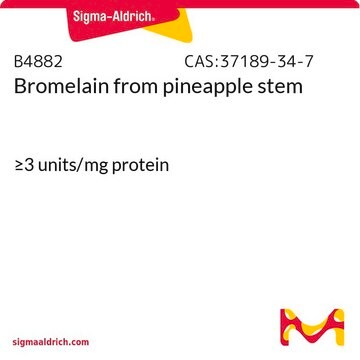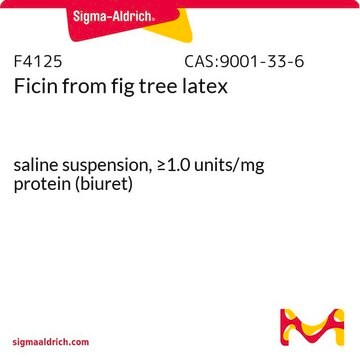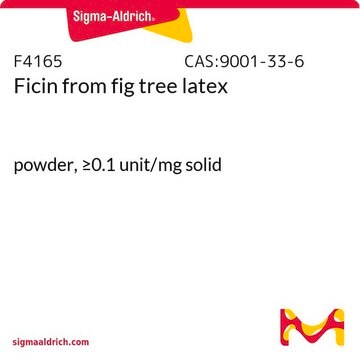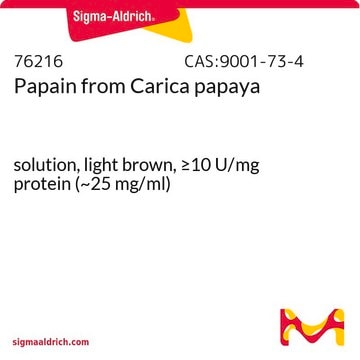F6008
Ficin from fig tree latex
lyophilized powder
Synonym(s):
Debricin, Ficain, higueroxyl delabarre
About This Item
Recommended Products
biological source
fig tree (latex)
Quality Level
form
lyophilized powder
specific activity
≥1.0 units/mg protein
mol wt
23.8 kDa
composition
Protein, 80-100% biuret
storage temp.
−20°C
Looking for similar products? Visit Product Comparison Guide
General description
pI: 9.0
Application
- in the proteolysis of tendon collagen
- in the digestion of Chlorophyta Ulva rigida
- to investigate it effect on protease-activated receptors 2 and 4 activation to induce itch in skin
Biochem/physiol Actions
Unit Definition
Physical form
Preparation Note
inhibitor
substrate
Signal Word
Danger
Hazard Statements
Precautionary Statements
Hazard Classifications
Eye Irrit. 2 - Resp. Sens. 1 - Skin Irrit. 2 - STOT SE 3
Target Organs
Respiratory system
Storage Class Code
11 - Combustible Solids
WGK
WGK 1
Personal Protective Equipment
Regulatory Listings
Regulatory Listings are mainly provided for chemical products. Only limited information can be provided here for non-chemical products. No entry means none of the components are listed. It is the user’s obligation to ensure the safe and legal use of the product.
JAN Code
F6008-100UN:
F6008-VAR:
F6008-BULK:
F6008-1KU:
F6008-200UN:
Choose from one of the most recent versions:
Certificates of Analysis (COA)
Don't see the Right Version?
If you require a particular version, you can look up a specific certificate by the Lot or Batch number.
Already Own This Product?
Find documentation for the products that you have recently purchased in the Document Library.
Customers Also Viewed
Protocols
This procedure may be used for all Ficin products.
Our team of scientists has experience in all areas of research including Life Science, Material Science, Chemical Synthesis, Chromatography, Analytical and many others.
Contact Technical Service










